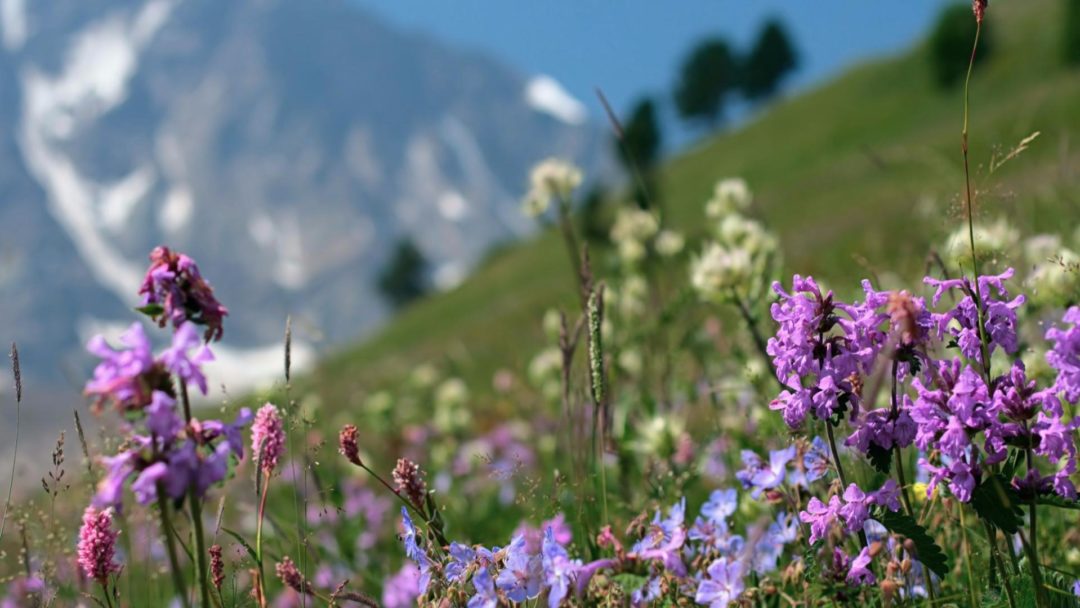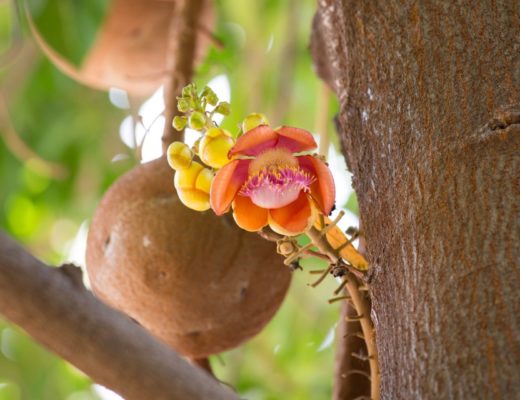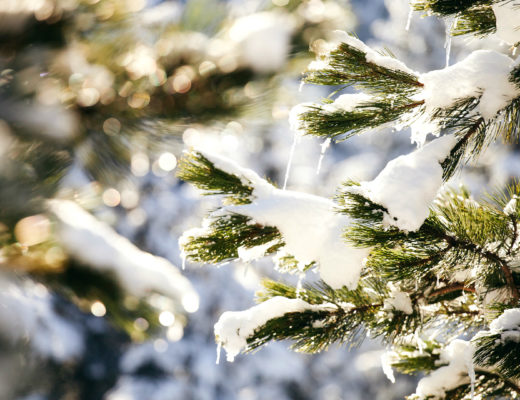Guest post by Rochelle Newman, a resident of Mountain Meadows.
My husband and I moved to the Mountain Meadows Retirement Community about eight years ago. The community is more than twenty years old. There are a number of reasons we transplanted from the east coast to Oregon, but the beautiful landscape of the state and Mountain Meadows attracted us the most. The thirty-acre campus was established with great trees, shrubs, and plants, but I saw the potential to make a greater statement. One that would bring awareness about a healthy planet, the need for f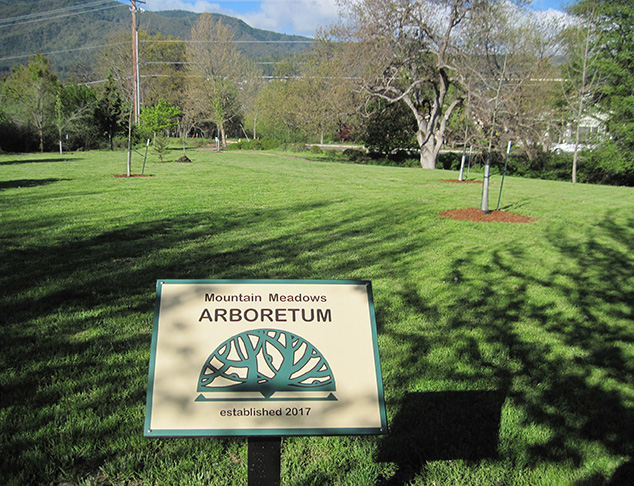 orests, and the role trees play in health. Trees are especially important to me, even though I was born in Brooklyn, New York, far from forests.
orests, and the role trees play in health. Trees are especially important to me, even though I was born in Brooklyn, New York, far from forests.
As a college professor in the creative arts teaching in Massachusetts, I wrote a series of four interdisciplinary textbooks that bring together art, math, and nature. Seeing Mountain Meadows as a large canvas was already in my mindset.
Mountain Meadows is unique in that the residents own their individual properties — houses, townhouses, condos — as well as the common areas within the community. We elect our own governing board, create and run necessary committees, and work with a hired community manager and management company. We are democracy in action.
This past year we created a Grounds and Natural Areas Committee to both oversee the campus and work with our landscape service. I have been researching arboreta for a while and after getting my committee’s approval, went through all the appropriate channels within our own institution and through the City of Ashland. We are also connected to the non-profit groups “Lomakatsi” (Restoring Balance) and SOCAN (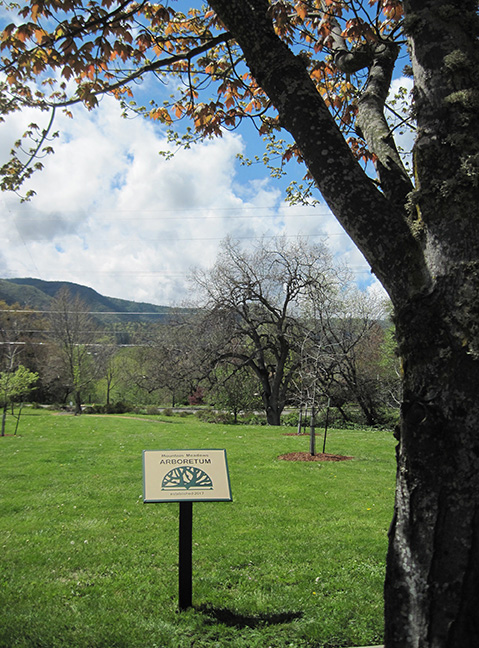 Southern Oregon Climate Action Now).
Southern Oregon Climate Action Now).
A “Remembrance Tree” program, three years old, was started by the Community Arts Committee of which both my husband and myself are members. We raise money through donations to plant a special tree in memory of those who passed away in the previous year. We have had a very favorable response from our residents.
Both the City of Ashland and our community has a tree replacement policy in place so that for whatever reason a tree is removed another tree is planted. We have a landscape service, Bumgardner Landscape that includes the service and expertise of an arborist.
Thus, it was obvious, at least to me, that declaring our campus an arboretum would serve to create awareness, allow us to consciously create an educated community through signage and information, plant a diverse inventory of native trees and shrubs, establish a unique ecosystem, and make a statement about the importance of preservation.
So on April 28th, 2017, on National Arbor Day we planted a giant sequoia in our lower park, the anchor section, of the Arboretum. In this area alone we have 25 trees, a walking path, and plans for benches. The entire campus has over three hundred trees which will eventually have signage.
It is my hope that other communities, no matter their size, will follow suit and give us all breathing space.

